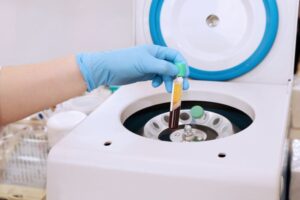Who Is Not a Good Candidate for PRP Therapy?
August 15, 2025

In the world of medicine, PRP is becoming increasingly popular. This remarkable therapy harnesses the power of your own blood to speed up healing and provide significant pain relief. It can help many types of patients! But is it right for you? In this blog post, you will learn about what it is, whom it can help, and whom it is not typically suitable for.
What Is PRP?
PRP stands for Platelet-Rich Plasma. This therapy uses a special concentration of your own blood platelets to stimulate healing in your body. A healthcare provider draws a small amount of your blood, processes it in a centrifuge, and separates out the platelets. These platelets contain important healing and growth factors. They are then injected into the targeted area of injury or pain. This powers up your body’s natural healing processes and can lead to pain relief and faster recovery from injuries.
What Can PRP Treat?
PRP therapy is versatile. In fact, it is widely used to address the following problems:
- Joint pain, including in the knees, shoulders, elbows, and hips
- Tendon injuries, such as tennis elbow or jumper’s knee
- Ligament sprains
- Muscle strains
- Osteoarthritis
- And more!
Some athletes and active individuals choose PRP to support faster recovery after sports injuries. Others may use PRP to address chronic pain that does not respond well to traditional treatments. Because PRP uses your own blood, the risk of an adverse reaction is almost zero.
Who Should Not Get PRP?
While PRP therapy offers benefits for many, it is not appropriate for every person. Some medical conditions or circumstances make PRP less effective or even risky. You may not be a suitable candidate for PRP if you have any of the following:
- Active infection at the injection site or elsewhere in your body
- Low platelet count or significant blood disorders
- Certain types of cancer
- Uncontrolled diabetes
- Severe anemia
- Autoimmune diseases that affect healing
- Current use of blood thinners that cannot be stopped
- Pregnancy or breastfeeding
If you have any concerns about your medical history, you should discuss these with your healthcare provider. The presence of one or more of the above conditions does not always rule out PRP, but it may reduce the likelihood of success or increase the risk of complications.
Consult a Doctor for More Information
Every person’s situation is unique, so it is important to speak with a medical professional before deciding on PRP therapy. Your orthopedic doctor can evaluate your health history, review your current medications, and discuss your treatment goals. Ask questions and share your concerns. Together, you and your doctor can explore the best choices for your health and recovery.
Meet the Practice
At the Institute for Non-Surgical Orthopedics, our large team of doctors and other experts work together to help patients find relief from musculoskeletal conditions, including injuries, arthritis, and more. We are proud to offer PRP and other regenerative medicine treatments. To learn more about us or to request a consultation, contact our Fort Lauderdale location at 954-563-2707.
No Comments
No comments yet.
RSS feed for comments on this post.
Sorry, the comment form is closed at this time.









